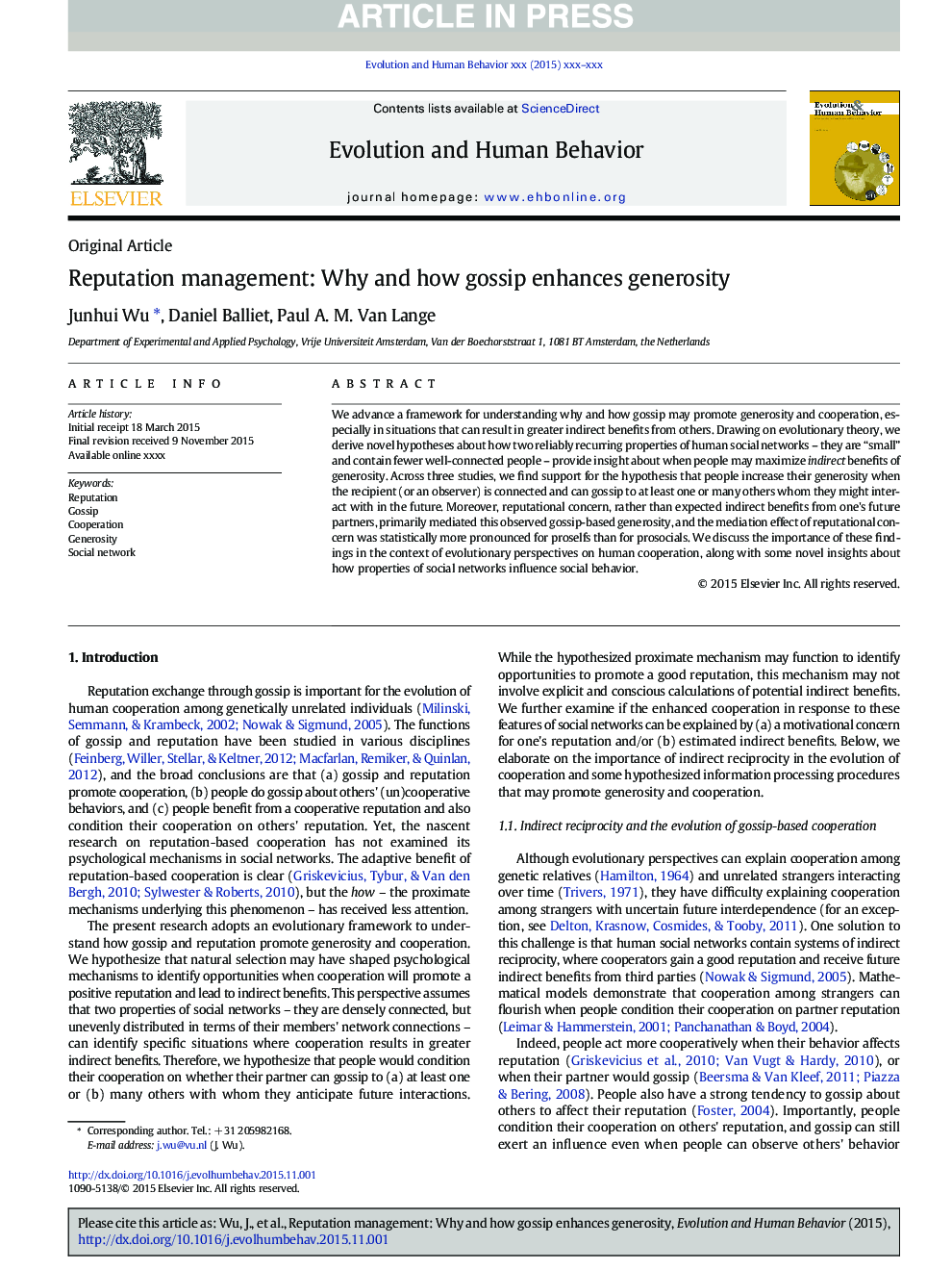| Article ID | Journal | Published Year | Pages | File Type |
|---|---|---|---|---|
| 10463928 | Evolution and Human Behavior | 2016 | 9 Pages |
Abstract
We advance a framework for understanding why and how gossip may promote generosity and cooperation, especially in situations that can result in greater indirect benefits from others. Drawing on evolutionary theory, we derive novel hypotheses about how two reliably recurring properties of human social networks - they are “small” and contain fewer well-connected people - provide insight about when people may maximize indirect benefits of generosity. Across three studies, we find support for the hypothesis that people increase their generosity when the recipient (or an observer) is connected and can gossip to at least one or many others whom they might interact with in the future. Moreover, reputational concern, rather than expected indirect benefits from one's future partners, primarily mediated this observed gossip-based generosity, and the mediation effect of reputational concern was statistically more pronounced for proselfs than for prosocials. We discuss the importance of these findings in the context of evolutionary perspectives on human cooperation, along with some novel insights about how properties of social networks influence social behavior.
Related Topics
Life Sciences
Agricultural and Biological Sciences
Ecology, Evolution, Behavior and Systematics
Authors
Junhui Wu, Daniel Balliet, Paul A.M. Van Lange,
